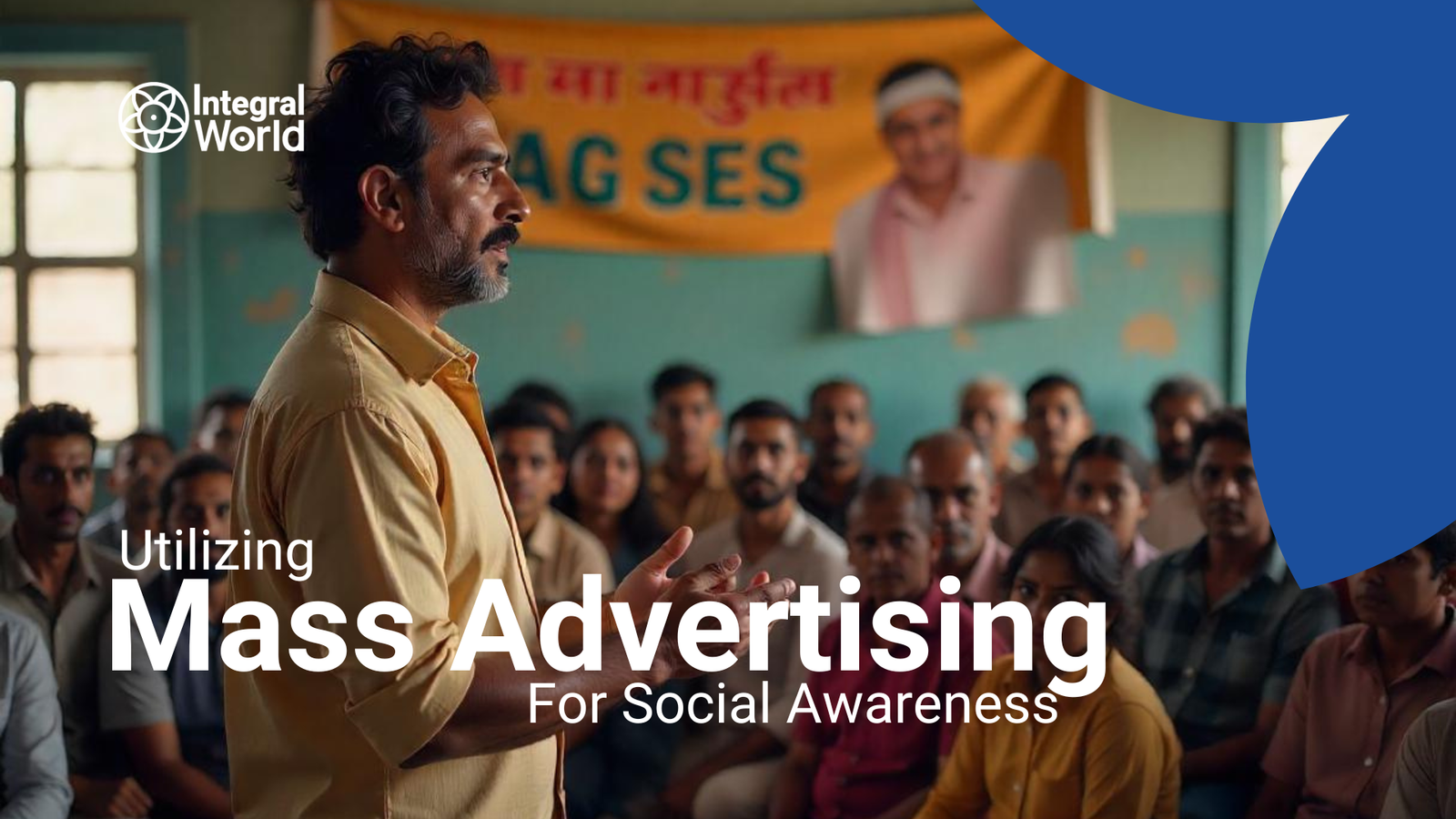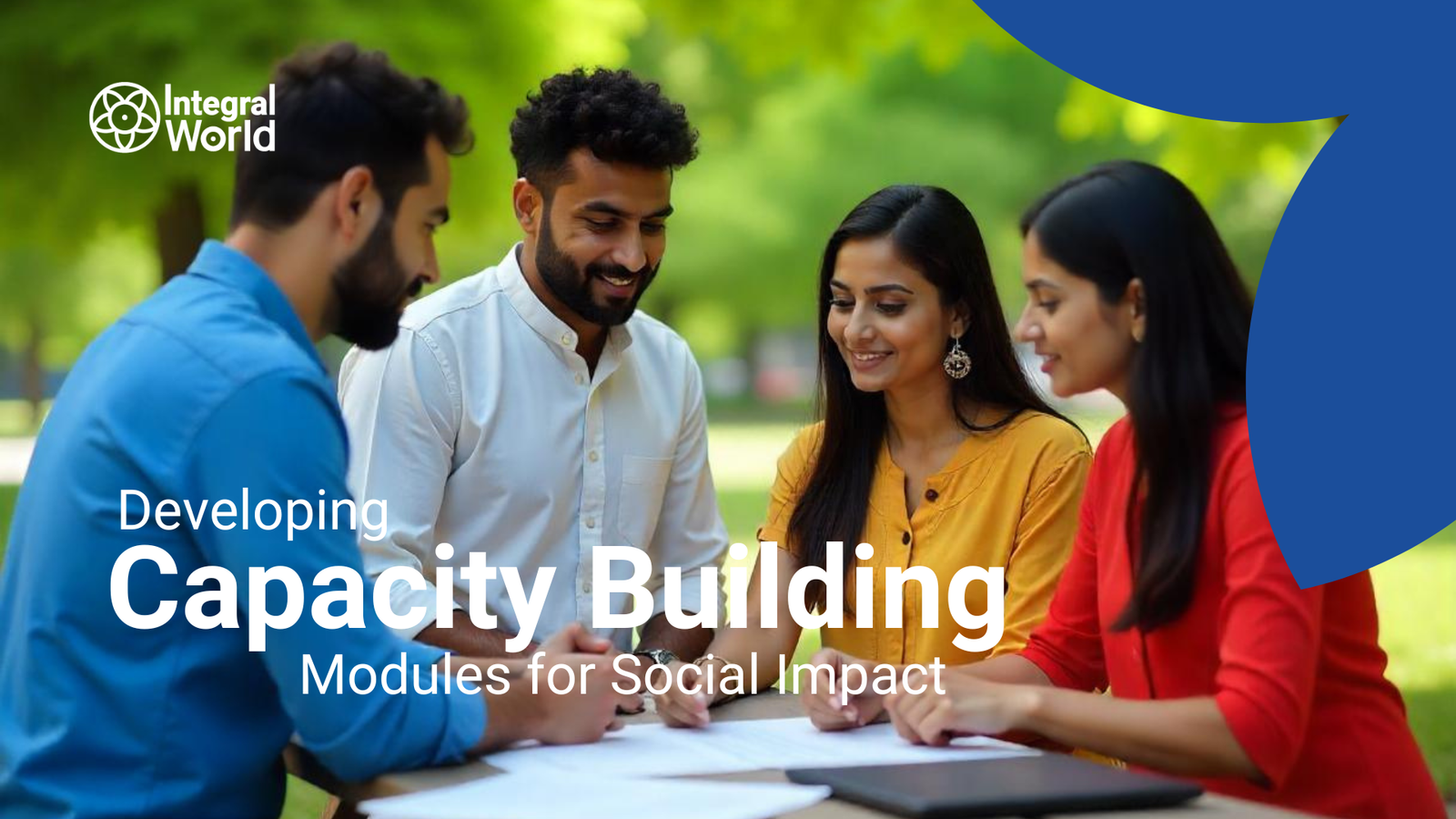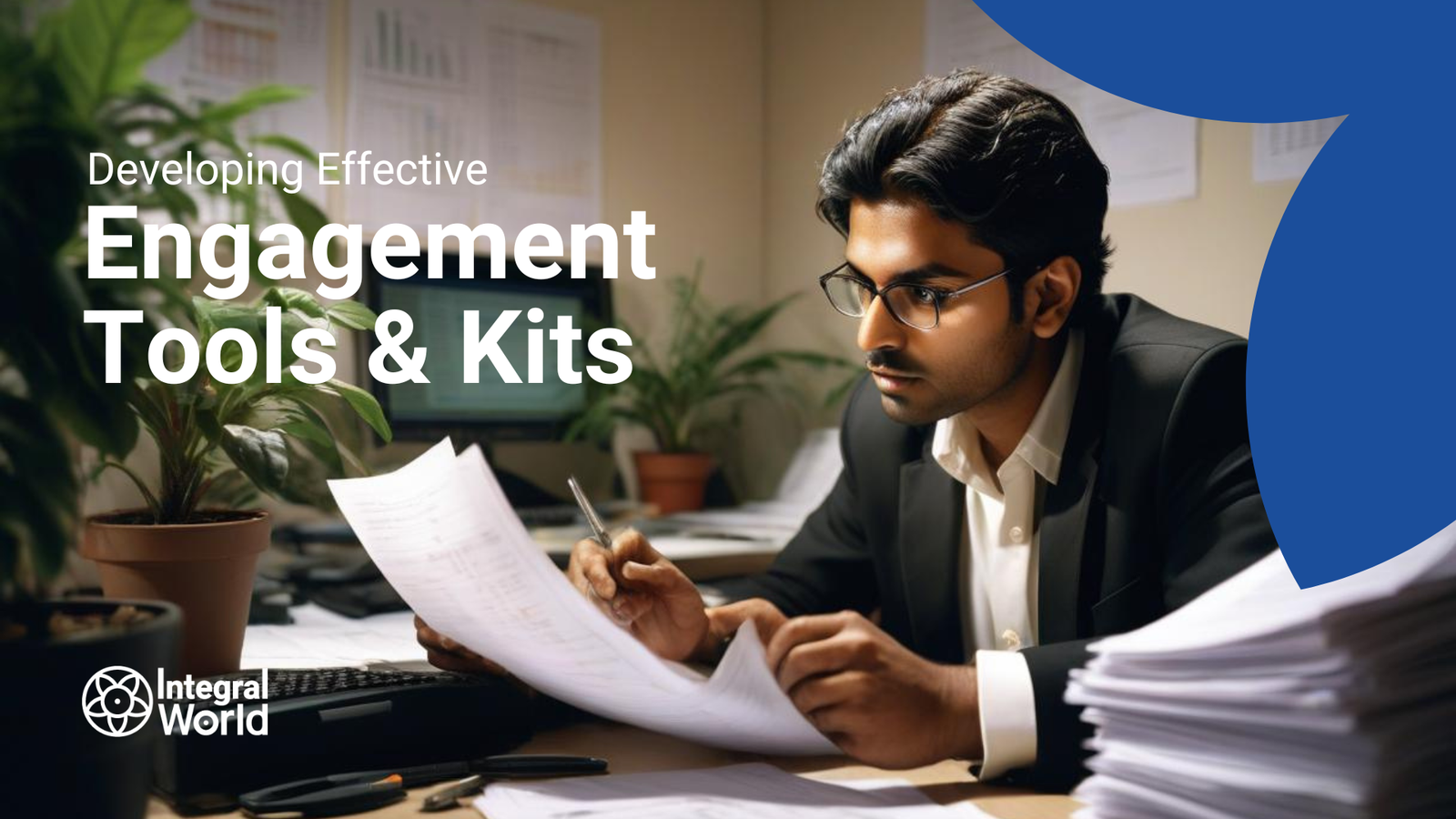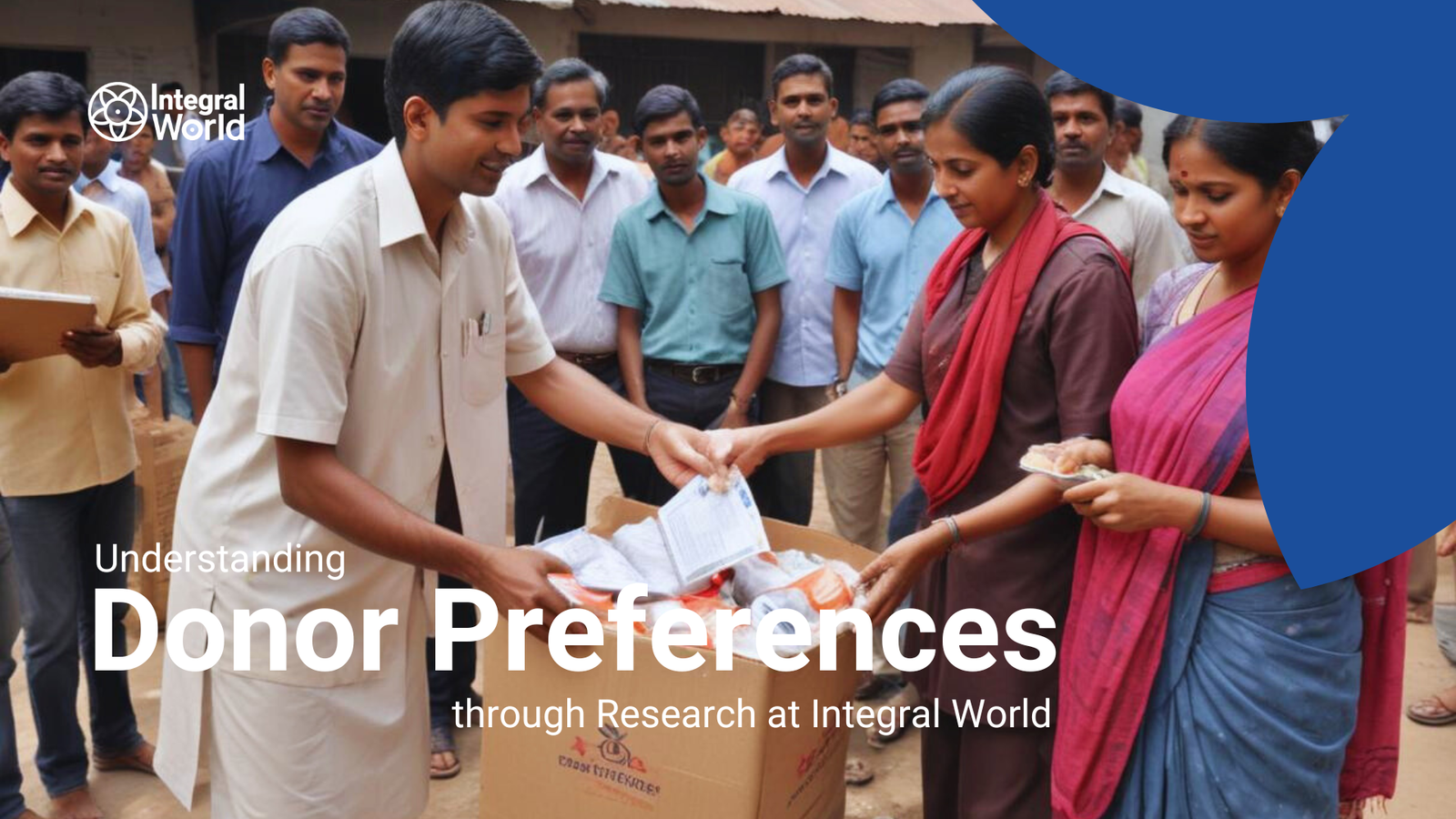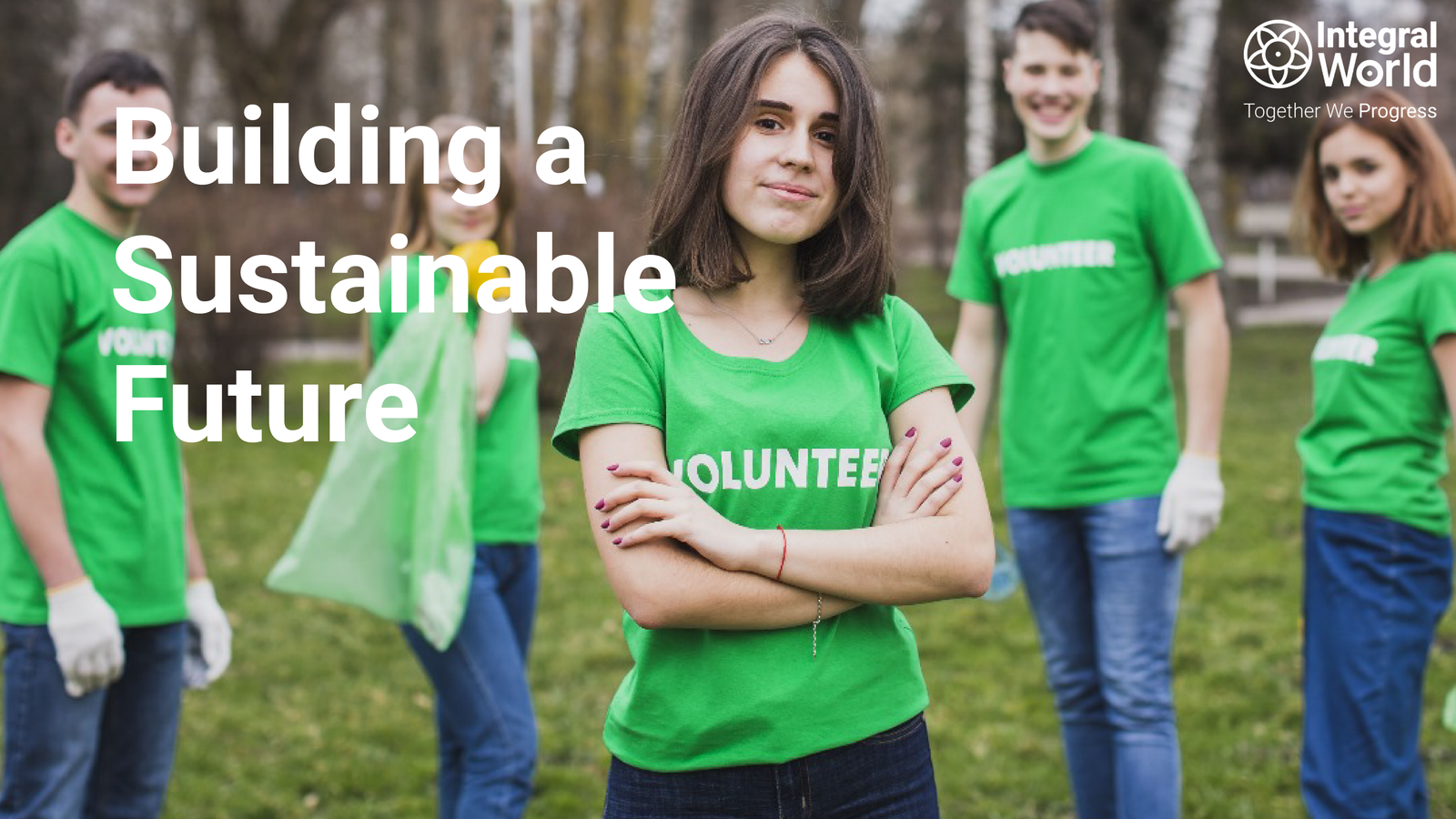Comprehensive monitoring and evaluation (M&E) plans are crucial for sustainable growth, enabling organizations to measure impact, adapt strategies, and achieve development goals. This article provides insights, case studies, and practical steps for NGOs to drive positive global change.
Continue readingBuilding Capacity within Community Groups
Sustainable development thrives when projects are meaningful, relevant, and supported by the communities they aim to help. This article highlights the importance of community engagement in development and offers practical strategies to involve and empower local populations effectively.
Continue readingUtilizing Mass Advertising for Social Awareness
Raising awareness is key to driving change in social development. At Integral World, we leverage strategic advertising to educate and involve communities, offering practical engagement strategies and examples to position ourselves as leaders in sustainable development initiatives.
Continue readingDeveloping Capacity Building Modules for Social Impact
This article explores the importance of community engagement and capacity-building in sustainable development. It highlights practical methodologies, real-life examples, and expert insights, showcasing Integral World’s expertise in fostering lasting, impactful growth through effective strategies.
Continue readingIntegrating Advanced Tech like AI and Data Analytics in Social Work
AI and data analytics are transforming social work by enhancing community engagement and improving impact evaluation. This piece highlights practical tips for effective involvement and showcases Integral World’s role in supporting sustainable development through innovative strategies.
Continue readingDeveloping Effective Community Engagement Tools & Kits
Community involvement boosts development project success. Explore practical tips and Integral World’s expertise in engaging local populations.
Continue readingUnderstanding Donor Preferences through Research
Understanding donor preferences and involving communities are key to sustainable non-profit programs. Discover practical strategies and real-world examples in this guide from Integral World.
Continue readingBuilding a Sustainable Future with Long-Term Planning
A sustainable future for development initiatives requires more than just short-term solutions and immediate impact. It necessitates long-term planning and a commitment to engaging communities at every step of the process.
At Integral World, we believe that sustainable development can only be achieved through genuine community engagement, where local populations are not just beneficiaries but active participants in the projects that affect their lives.
Engagement of the Community in Development Projects is Important for a sustainable future
For Lasting Impact Enabling Community
When communities are actively participating in development projects, the outcomes tend to be more sustainable, relevant and impactful. Project engagement by the community helps to match projects with unique requirements and preferences of the people thus raising ownership and success in long-term affairs.
According to John Paul Lederach, a renowned peacebuilding scholar “Building a sustainable future requires building relationships that are inclusive, respectful, and attuned to local needs and capacities.”
Developing Trust and Collaboration
Community involvement in development activities is important because it builds trust between development organizations and local populations. Such collaboration can only be achieved if there is trust among the people involved. When individuals feel valued and respected they are more likely to be supportive as well as contribute towards the achievement of this project. Integral World’s approach involves transparency as well as mutual respect that creates an atmosphere for collaboration.
Participation as Empowerment
Engaging communities makes them active participants in decision-making processes thereby empowering them through participatory development. This step leads to higher self-reliance and adaptability since these societies gain skills that help in addressing their own challenges.
Amartya Sen declares, “Development is about expanding the freedoms that people enjoy.” It follows then that community engagement in development projects is a necessary step on this path.
Practical Strategies that can make Community Engagement Effective
1.Do Comprehensive Needs Assessments
Conducting comprehensive needs assessments helps one understand the challenges, priorities and resources of a community before embarking on a project. For instance, direct consultations with marginalized groups should be part of this assessment to ensure diversity in perspectives. The relevance and impact of projects can be enhanced by matching them with actual needs of the community.
2.Establish Local Advisory Committees
One way that an organization can foster better understanding is through establishing local advisory committees that have representation from leaders within the affected communities and other interested stakeholders. Apart from helping in identifying priorities, these committees design project plans and monitor progress.
We have used this approach successfully at Integral World in several projects to ensure our initiatives are locally driven and culturally sensitive.
3.Encourage Continuous Dialogue and Feedback
Open communication channels throughout the lifecycle of a project are key towards effective community engagement. By having regular meetings, workshops or feedback sessions, members of the society will be able to air out their concerns or opinions as well as suggestions for improvement if any is required. This enhances project outcomes through continuous dialogue while building trustworthiness and responsibility.
4.Employ Participatory Tools & Techniques
Participatory tools such as Participatory Rural Appraisal (PRA) and community mapping facilitate active involvement whereby every stage involves participation by members of the community who becomes partners in development processes hence empowering themselves in planning for their own development processes which they can take ownership off after intervention period has ended thus making it sustainable integral world uses these methods often to keep our programs grounded in realities experienced by locals, ensuring a sustainable future.
5.Provide Capacity Building and Training
Training is important for sustainable development because it builds capacity for local individuals. Education programs like this improve skills, knowledge, leadership etc., leading to self-sustaining growth within communities,for example rural health projects conducted by Integral World train local health workers during training sessions on how they could sustainably provide essential services long after the completion of a project.
Real-Life Examples of Community Engagement
Case Study: Water Sanitation Project in Kenya
Integral World started a water sanitation project in a rural community which aimed at improving access to clean water. From the beginning, we engaged with residents through conducting needs assessments and established a community advisory committee. This committee played a critical role in identifying suitable places for water points, planning for construction activities and developing maintenance plans.
Training sessions were given to local water management teams to teach them how to maintain and repair such structures. We provided hygiene education to promote safe water use practices and engage communities in our sustainable future development initiatives. As such, the community took responsibility of it leading to easier access of water and reduced ailments caused by poor sanitation.
Example: Educational Initiatives in India
Marginalized children are being offered improved educational opportunities through partnership between Integral world, local schools and community groups in India Parents, teachers and leaders from within these communities were involved as we planed for these programs hence making them culturally relevant while addressing specific local challenges.
Local education committees were set up that monitored progress regularly as well as provided feedbacks. To further enhance this impact there have been capacity building workshops organized particularly targeting teachers plus several other members drawn from different sections of the society who participated voluntarily. Participation therefore led to increased school enrolment rates; better educational outcomes; stronger sense of community involvement.
Community Engagement: Expert Insights
In his works, Amartya Sen focuses on the idea that development ought to expand the freedom and opportunities of individuals. This is supported through his assertion that participatory development which gives power and autonomy back to the people themselves, is an important way to achieve this. In other words, participatory development as discussed by Amartya Sen suggests sustainable and inclusive growth.
Jeffrey Sachs, a leading expert in sustainable development, has highlighted how community involvement can contribute towards achieving the Sustainable Development Goals (SDGs). According to Sachs, local communities are best placed to understand their peculiar problems and develop appropriate solutions for them.
This perspective also influences Integral World’s projects because we believe in community-led development as a driver for lasting social change.
Integral World’s Competence in Promoting Community Engagement for a sustainable future
Integral World boasts of its ability in promoting community participation for sustainable development. Our approaches involve using dialogue that builds respect amongst project partners at all levels; holistic approach with emphasis on capacity building alongside long term learning processes thus ensuring sustainability of our programs.
Holistic Approach to Development
Our holistic approach takes cognizance of the fact that communities are complex systems with interconnected problems and needs. We are able to deal with these complexities by involving community members at each stage of project life cycle such as planning, implementation , monitoring and evaluation. This ensures that our initiatives are all round inclusive and sustainable.
Empowerment Through Storytelling
We use storytelling to engage more communities in our development initiatives for a sustainable future. In addition to imparting knowledge through stories about exemplary lives within society, success stories among others are a great unifying factor since these stories help induce pride thereby affirming loyalty towards collective goals. Such an approach also encourages peer learning activities where one community can duplicate successful practices pursued by another.
Strategic Communication and Advocacy
Communication is very vital in our community engagements. We use strategic communication to raise awareness, build trust, and mobilize support for our initiatives. In addition, we empower marginalized communities through advocacy by ensuring that their perspectives and needs are included in policy formulation and decision-making.
Conclusion
Real community engagement in lasting development programs comes from long-term plans, genuine long-term commitment to the community and adequate early involvement of the affected local populations so as to ensure efficient project implementation and management. Projects only make sense when they connect with the local community. Without that connection, ensuring relevance, impact, and sustainability becomes difficult.
This shows that at Integral World, community engagement goes beyond just a business strategy but a way fostering empowerment, trust and collaboration among stakeholders.
Ready to change the world? Learn more about how Integral World can help your organization engage communities in sustainable development. Be part of our next initiative that aims at generating global momentum towards an enlightened, fairer future.
“Local communities are best positioned to understand their unique challenges and develop appropriate solutions.” – Jeffrey Sachs

